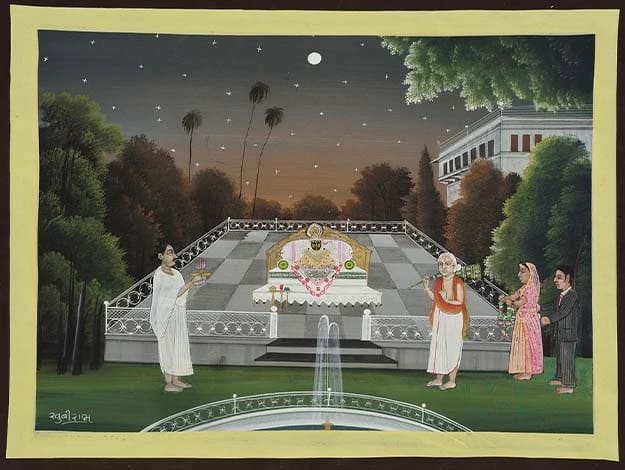
menu
Occurrence’ & ‘Absence’ An Exhibition of Nathdwara Pichwai & Paintings
Curatorial note
Introduction
‘Occurrence’ & ‘Absence’ An Exhibition of Nathdwara Pichwai & Paintings
We are delighted to present you with Hitesh Rana's collection of the Nathdwara paintings on display at Sarjan Art Gallery. The exhibition is being organized during the month of the festival season which adds further meaning to the paintings on display. The paintings are a visual manifestation of a lived faith.
The title of the exhibition, ‘Occurrence’ & ‘Absence’, defines the eternal union of Radha Krishna, signifying the love and longing, the meeting and waiting, and the presence and absence of human-divine relationship. The Nathdwara paintings on display embody the spirit of the 350-year-old bhakti tradition initiated by Vallabhacharya and elaborately codified by his son Vithalnathji.
The Primacy of the Art/Artists within Nathdwara Sect
It is important to note that since its inception, Nathdwara sect gave primacy to art and artists. In a way, art fulfilled the aesthetic, spiritual, and communicative role in the practice, preservation, and propagation of the Pushti-marg cult. Artists, therefore, have been in the service of Shrinathji from its beginning and continue to do so till today.
At the beginning of the 17th century, the Nathdwara artists painted on cloth called pichwais for cultic use as a backdrop for the deity in the Havelis. Later, in the 18th century, the artists began painting on paper which enabled them to explore diverse themes related to Krishna & Radha. The poems of Ashtachap Kavis and stories of Krishna inspired the Nathdwara artists to paint on paper, thus not necessarily subscribing to the cultic requirements.
The painters of Nathdwara, thus, are creators of icons and storytellers of Krishna’s exploits. Being icon painters, they are followers of the Nathdwara cult and therefore painting becomes not only an aesthetic and creative activity but also rooted in the faith of Lord Krishna. The artists here play an important role in aiding Lord Krishna’s manifestation to his devotees. The followers of the sect who come from far and wide to Nathdwara can get one-to-one darshan of the Lord by venerating the image or icon of Bal Krishna. They are also able to buy and take a Nathdwara Pichwai or painting back home as a religious souvenir. Through their veneration, they can experience his presence. This experience is not a mental or abstract phenomenon but rather through their senses.
The ‘Ras Leela’ as a metaphor for divine occurrence and absence
We are familiar with the love stories of Radha & Krishna immortalized through literature, performing art, and visual art down the centuries. The union of Radhe Krishna is the central subject of the Pushtimarg cult founded by Shri Vallabhacharya in the 16th century. As mentioned above, the unique aspect of the sect is to blend devotional worship with practical artistic expressions. The spirituality of Pushtimarg – emerging from the bhakti tradition enabled the artists with divine inspiration to create numerous paintings on religious themes.
The various Nathdwara paintings on the theme of Ras Leela depict the loving union of Radha Krishna. Krishna manifests himself to Radha as well as to all his gopis. He can be present simultaneously to everyone. The Ras Leela paintings, therefore, are the instances of ‘occurrence’ after a hiatus of ‘Absence’. The Artists of Nathdwara depict Lord Krishna playing board games with Radha, playing mischief with the gopis, expressing his tender affection to Radha by combing her hair, eating food, stealing butter, playing flute, dancing, milking the cows, and other human activities. Lord Krishna, therefore, though divine, is born as human, and his love for humanity is expressed through human activities. It is through such human activities that Krishna and Radha express their love for each other and forge eternal union and promise the same to the faithful.
The bhakti tradition is the ultimate inspiration for Nathdwara paintings
Historically the bhakti tradition emerged as an alternative to the abstract philosophy promulgated by the priestly elite. It offers simple and practical means to achieve liberation. Mystic and poet Mirabai, Narsinh Mehta, and many other saints considered the divine as their spouse, through their poems they expressed their longing and their life's goal to be reunited with the divine. The Nathdwara paintings exhibited here in the same way are the visual metaphors of ‘Occurrence’ and ‘Absence’. Here paintings become a practical means to experience the divine reunion. Our human limitations and daily occupations have limited our ability to experience the divine in our day-to-day lives. Paintings offer or make occur the divine form; the making of it and meditating on it offer a possibility for emancipation to both creators and devotees.
Jothi Xavier Sarjan Art Gallery, October 2023
Artworks
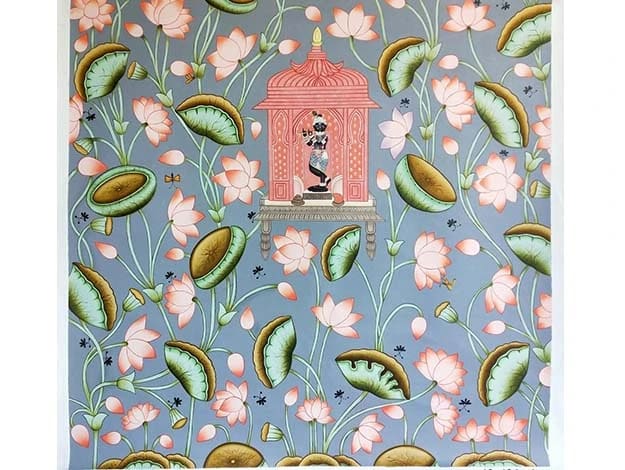
Dummy title
Dummy description
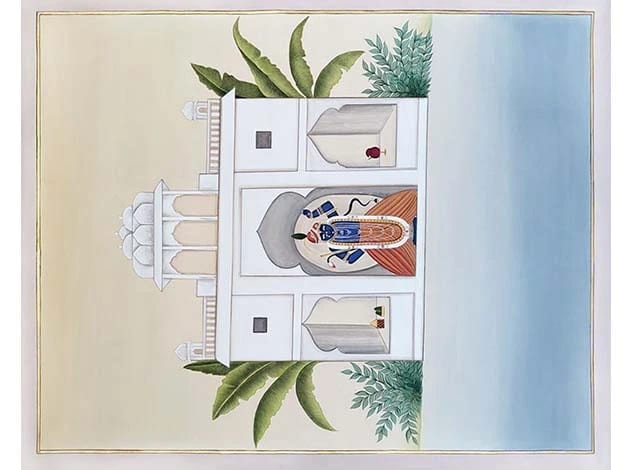
Dummy title
Dummy description
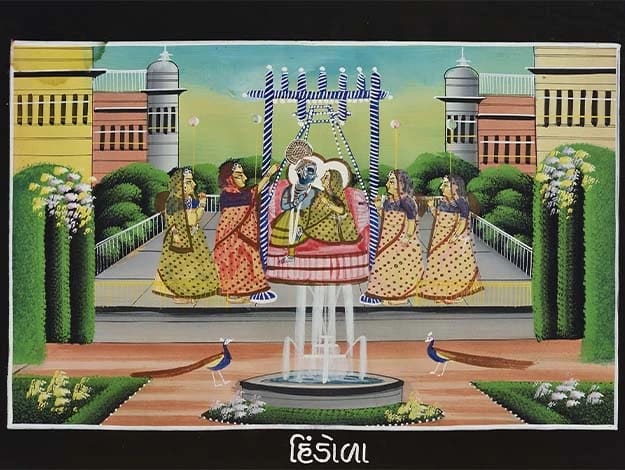
Dummy title
Dummy description
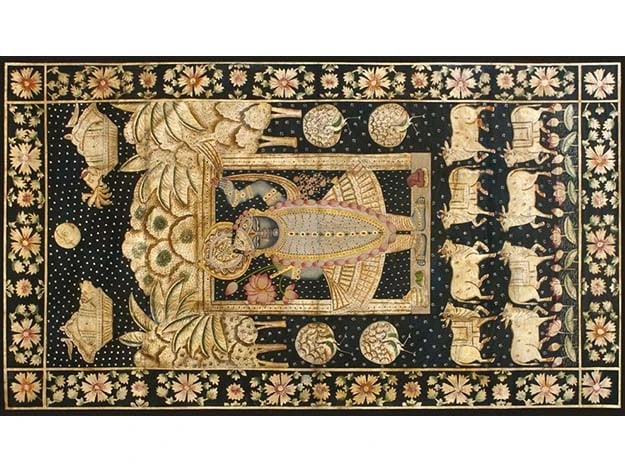
Dummy title
Dummy description
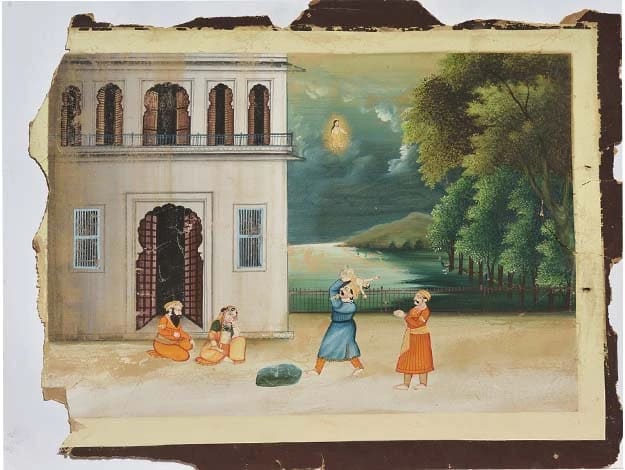
Dummy title
Dummy description
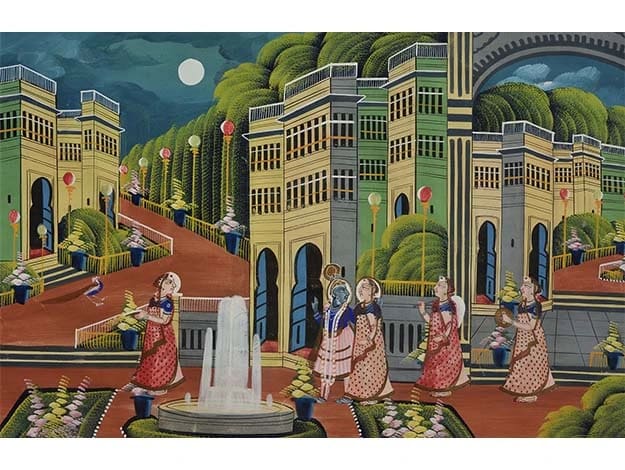
Dummy title
Dummy description
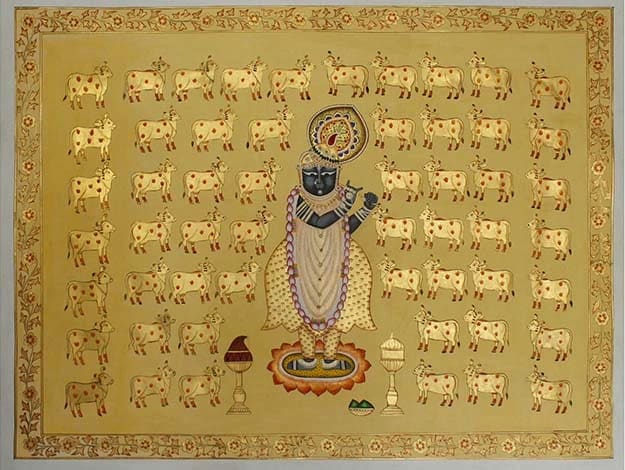
Dummy title
Dummy description
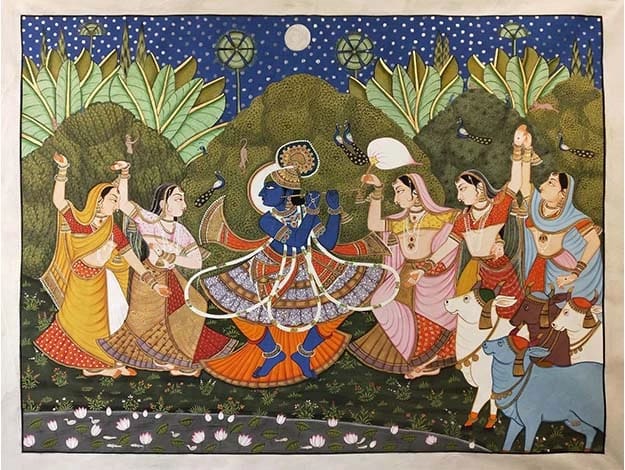
Dummy title
Dummy description
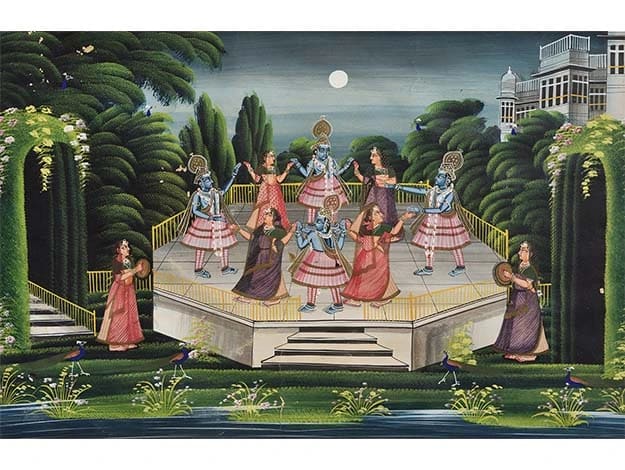
Dummy title
Dummy description
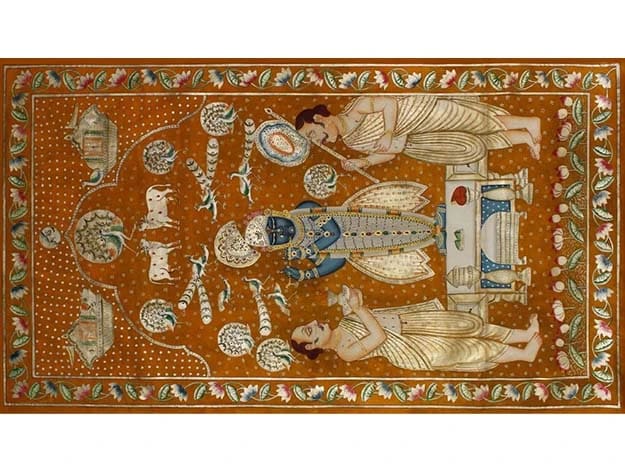
Dummy title
Dummy description
